MCM College: Language, Identity, Interaction and Culture: The Bewitching Braid
MCM College: Língua, Identidade, Interação e Cultura: A Trança Feiticeira

On October 27, 2024, a film appreciation on Multicultural Communication titled “Language, Identity, Interaction and Culture: The Bewitching Braid” was held at the Moon Chun Memorial College, University of Macau. Assisted by Prof. Mário Pinharanda-Nunes, Director of the Centre for Luso-Asian Research, and Wolfgang Lei, Resident Assistant, explored the linguistic dynamism of Old Macau, the process of Creole language formation, and how these languages were used in different social communities living in adjacent areas. Consequently, based on the theories discussed, students appreciated the film The Bewitching Braid, with the aim of exploring how languages can help construct social identities and social positioning.
“I really enjoyed it, it was a nice moment and an amazing opportunity to learn more about old Macau and nowadays Macau. About the mix of Portuguese and Chinese culture. Besides this cultural acquisition, I also had a good time meeting with our professors and students. I hope to have more opportunities to participate in events like this one.” – Gabriela Rorato (Master Student/FSS)
“The insights shared by Prof. Mário Pinharanda-Nunes deepened my understanding of cultural identity and the power of language in shaping social interactions. I left the event with a greater appreciation for how the Macanese language intertwines with cultural heritage of Macau.” – Hoi Wai Hei, Onofre (Year 3 Student/FLL)
“The exhibition of the film made the seminar easier to comprehend. Furthermore, the partial filming also showed the street scenes and the customs of the people in Macau in the 20th century. All of this inspired me about the transformation of language and the harmony of communities in the same place, and it sparked my interest in exploring more secrets of this multicultural city” – Wang Chuyue, Célia (Year 3 Student/FAH)
Text: Wolfgang Lei (Resident Tutor)
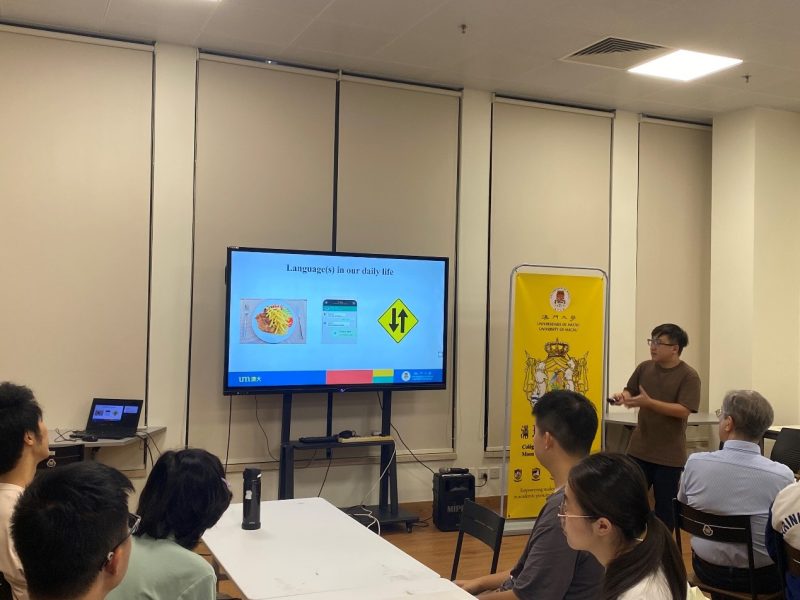


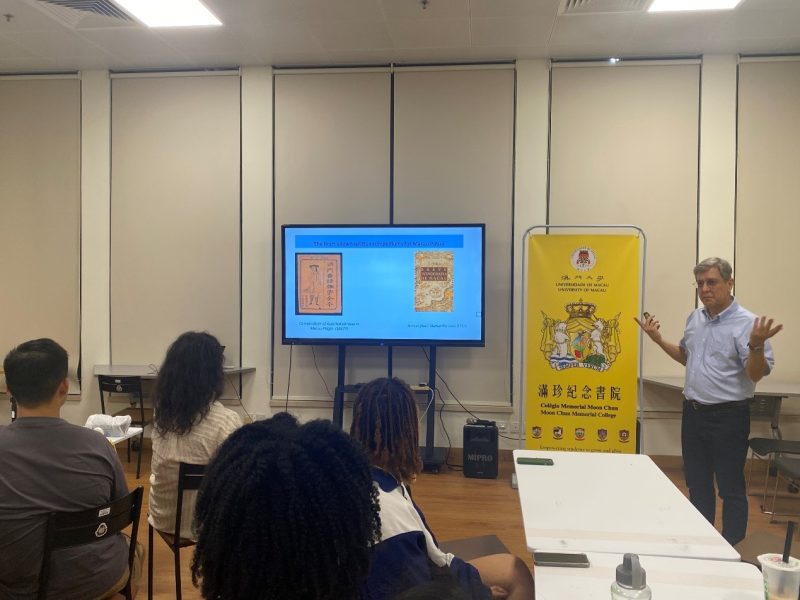


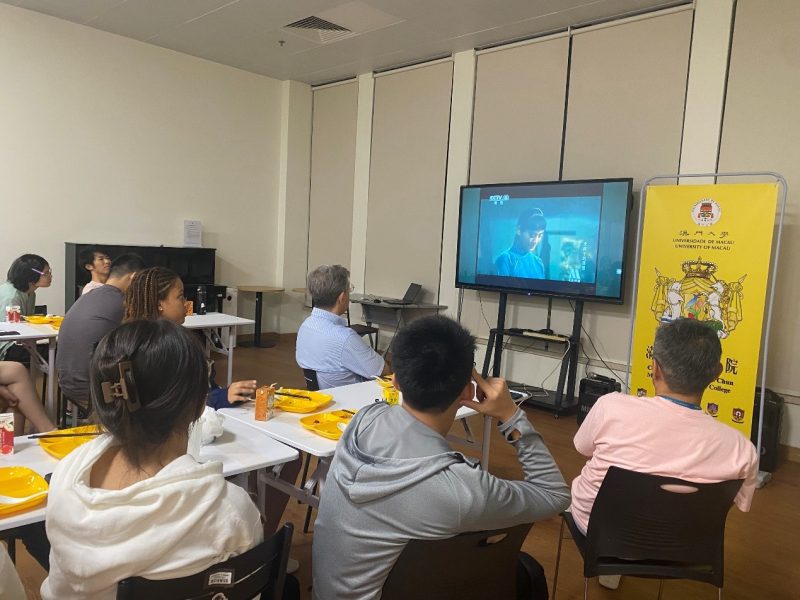


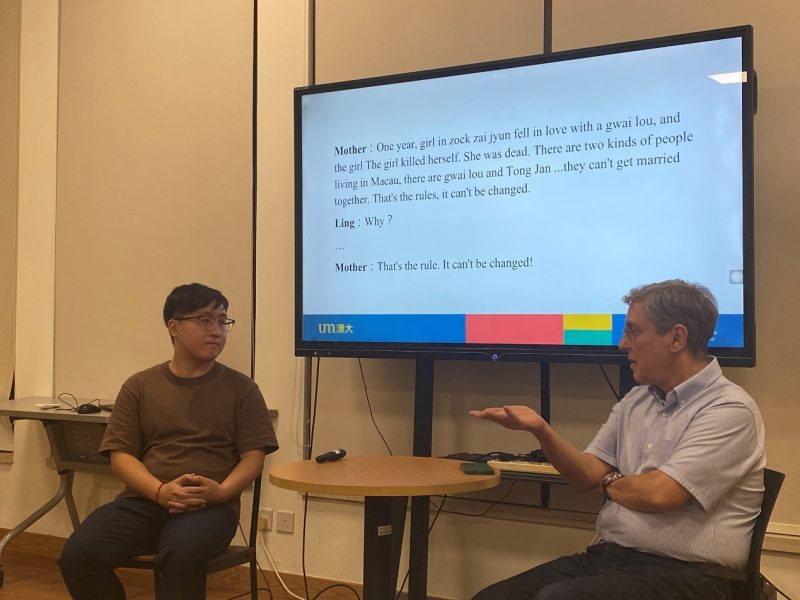


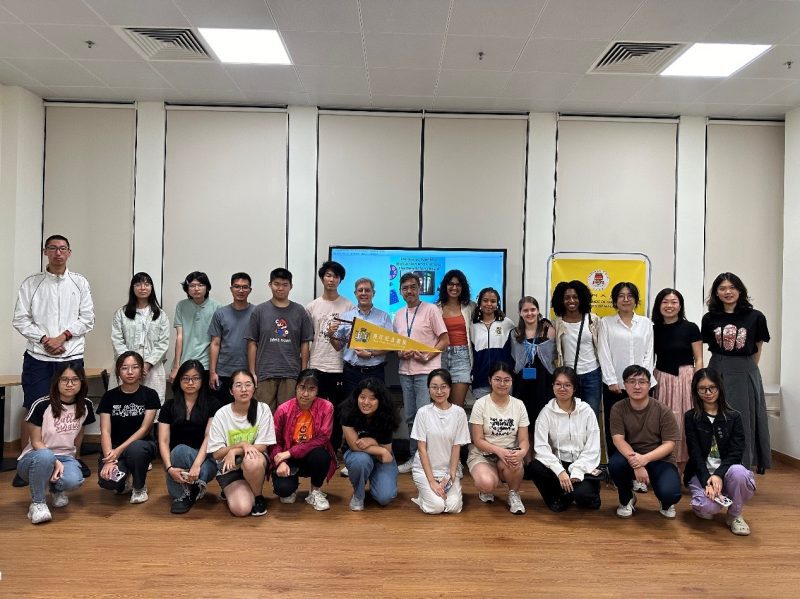





No dia 27 de Outubro, do 2024, com vista a aprofundar o entendimento acerca de singularidade multicultural de Macau, realizou-se um apreciação do filme intitulado “Língua, Interaçõe, Identidade e Cultura:” nas Colégio de Memorial Moon Chun, Universidade de Macau. Tendo auxiliado pelo Prof. Mário Pinharanda-Nunes, Director do Centro de Investigação e Estudos Luso-asiáticos e pelo Wolfgang Lei, Auxiliar Residente do Colégio, os alunos conheceram o dinamismo linguístico de Macau nos anos passados, processo de formação de língua crioula, e como essas línguas foram utilizadas em diferentes comunidades sociais que viviam nos bairros adjacentes. Consequentemente, baseando nas teorias referidas, os alunos apreciaram o filme A Trança Feiticeira, com objectivo de explorarem como as linguagens podem ajudar a construir as identidades sociais e posicionamento social.
“Gostei muito, foi um momento agradável e uma oportunidade fantástica para aprender mais sobre a Macau antiga e sobre a mistura das culturas portuguesas e chinesas. Para além desta aquisição cultural, também me diverti muito no convívio entre os nossos professores e alunos. Espero ter mais oportunidades de participar em seminários como este no futuro.” – Gabriela Rorato (Primeiro Ano de Mestrado/FSS)
“Os conhecimentos partilhados pelo Prof. Mário Pinharanda-Nunes aprofundaram a minha compreensão acerca de identidade comunitária e de como as línguas na formação das interações sociais. Saí do evento com um maior apreço pelas histórias como a língua crioula da comunidade maquista se entrelaça com o dinamismo cultural de Macau.” – Hoi Wai Hei, Onofre (Terceiro Ano/ FLL)
“A exibição do filme fez com que o seminário fosse mais fácil de compreender. Além disso, a filmagem parcial também mostrou os cenários das ruas e os costumes do povo em Macau no século XX…tudo isto ofereceu-me uma inspiração sobre transformação de língua e harmonia das comunidades num mesmo lugar, interessou-me em explorar mais secretos desta cidade multicultural.” – Wang Chuyue, Célia (Terceiro Ano/ FAH)
Texto: Lei Lap Fai (Auxiliar Residente)














